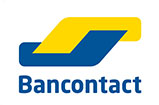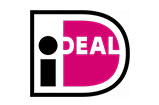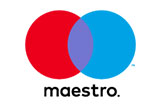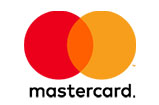Lithium ion (li-ion)
-
- What does Li-ion mean?
A lithium-ion battery or Li-ion battery is a rechargeable battery that is increasingly used for electrical machines, mainly because of its high energy density, short charging time and long service life. Li-Ion batteries also easily tolerate intermediate charges, in contrast to the classic lead-acid batteries. - What are the advantages of Li-ion?
A. Longer lifetime
Lithium-ion batteries have a life cycle of 3000 or more cycles, compared to only 500-1000 cycles for lead-acid batteries. Lithium-ion batteries generally last many times longer than lead-acid batteries, which leads to a longer effective life for lithium-ion products. Cycles are also counted in % of charge instead of one cycle each time you connect the battery to the charger. This means: 10% charge is 1/10 of a cycle on a Li-Ion battery, while a 10% charge on a lead-acid battery is 1 full cycle.B. Occasional load
While lead-acid batteries always need a full charge cycle of 8-12 hours to keep the battery chemistry in balance, LI-Ion batteries really love the occasional charge. They can be plugged in and charged for 10 minutes during a lunch break. This offers a unique way to work in shifts and reduce the total amount of Ah in the truck.C. Reduced weight
Lithium-ion batteries offer a high power density, making them relatively small and light. They weigh only a third of the weight of lead-acid batteries.D. Higher efficiency
Most lithium-ion batteries are 95 per cent or more efficient, which means that 95 per cent or more of the energy stored in a lithium-ion battery can actually be used. In contrast, the efficiency of lead-acid batteries is closer to 80 to 85 percent.E. Faster charging
Batteries with a higher efficiency charge faster. Higher efficiency means higher effective battery capacity. Lithium batteries take 2-3 hours to charge, while lead-acid batteries need 8 hours. The high effective capacity of lithium batteries reduces downtime in the warehouse.F. Eco-friendly
From an ecological point of view, it is non-toxic and harmless. Lithium batteries do not emit any gases. So it is a much cleaner technology and safer for the environment than lead-acid.G. No maintenance
While lead-acid batteries require special maintenance, lithium batteries do not require active maintenance to extend their life. Therefore, the cost of battery maintenance and infrastructure is largely eliminated. - Why Li-ION instead of lead acid?
Depending on the type of material handling product, the decision about battery technology can be easy or a little more difficult. Looking at the prices of pallet trucks today, it seems logical to opt for a Li-Ion version, even for the multi-purpose versions, as the cost price is comparable and offers huge advantages. - Is Li-ion the right choice for me?
When making large purchases such as material handling equipment, you want to thoroughly consider your options. Contact us directly for more information on our Lithium products. If you wish to combine a Lithium-ion battery with your system, or you wish to receive more information on our Lithium products, please contact our representatives directly.
- What does Li-ion mean?










